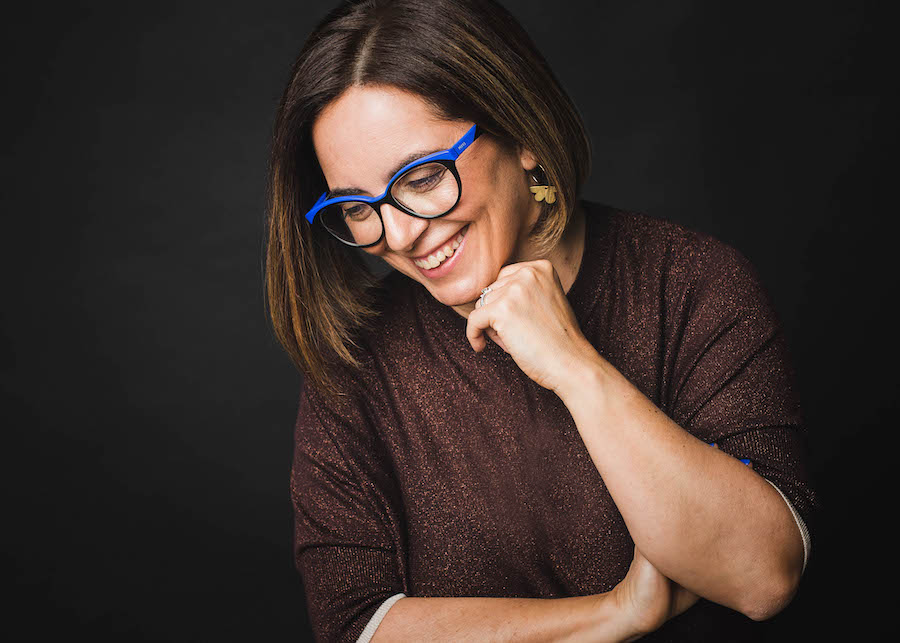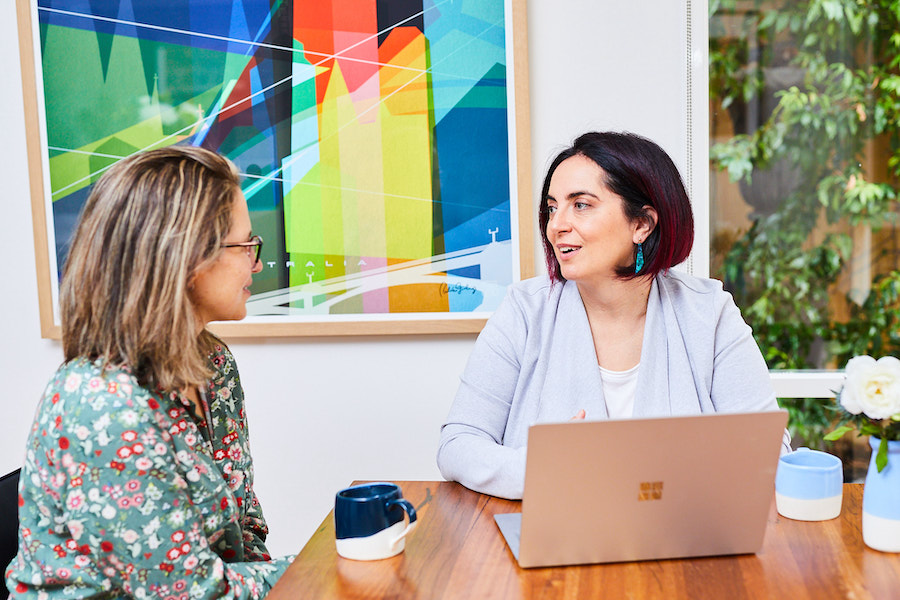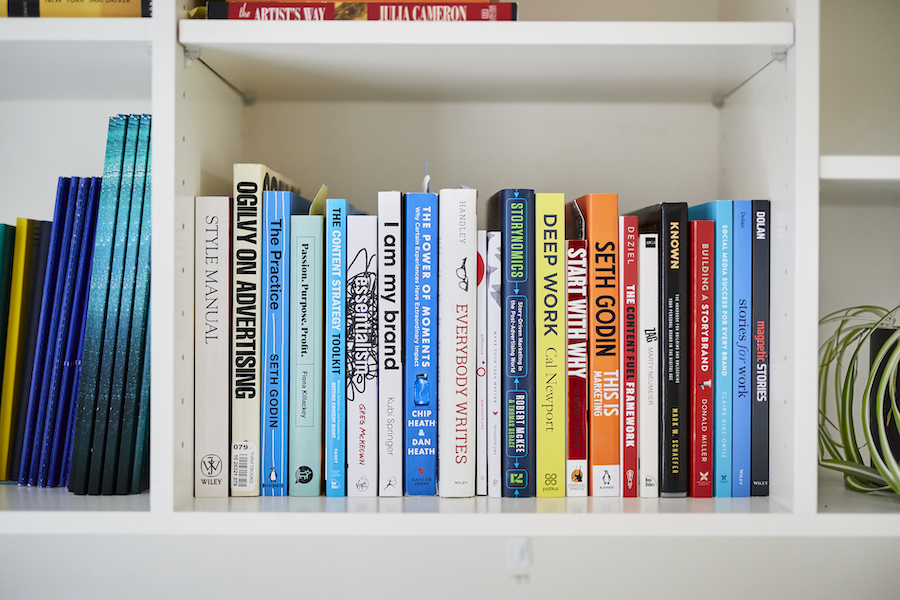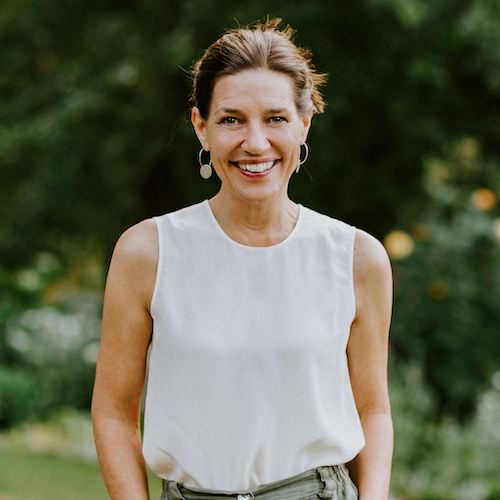
In November 2012, I met with Sara Tiefenbrun at a local cafe to talk about the opening of the Melbourne branch of Alain de Botton’s The School of Life. To say I was excited is an understatement.
I remember when I first discovered The School of Life website, long before the days of Instagram, and feeling as though I wanted to pack my bags and move immediately to London. I loved everything about what they did.
Exploring topics of history, psychology, sociology, politics, ethics, and philosophy, the School offered guidance on the internal human experience as well as societal issues such as responsible consumerism and entrepreneurship.
Sara had recently been charged with the role of Project Director for the School and she was putting together a ten-week summer program to kick off the opening of their first international branch.
After our coffee, Sara offered me a speaker spot, where I was to host a session on mindfulness. Just as I had anticipated, it was a joy to be amongst those people and one of the rare times in my life when I have been immediately at home in a group setting.
Some years later, Sara got back in touch to chat about what was next for her after finishing that role. Our conversation reminded me of all that was great about The School of Life. Sara is delightful company – intelligent and vibrant and she’s interested in what it means to live with purpose, be creative and make a difference through her work. In her own words, she wants to be ‘on the side of good’ in the world. I loved that phrase when I first heard it from her and still think of it often.
Sara has since found a way to embrace all the things that are important to her in her work as a strategist and storyteller. Her business is website is here.
I hope you enjoy reading her story.
Can you tell us a little bit about your work and the clients you usually work with?
I deliver narrative strategy through coaching, consulting and workshops.
In my coaching practice, I work with senior leaders in tech, government and NGOs, helping them craft a narrative for change. As a consultant, I create strategies and brand stories for businesses.
The workshops I deliver upskill business leaders to use storytelling for influence. I help individuals and teams articulate their value and build a more productive and aligned culture.
I love the idea of ‘storytelling’ but I’m not sure where I might apply it in my own business. Can you give me a few examples of how it is most useful?
Storytelling can be a slippery concept. It’s useful to make a distinction between a narrative and a story. A story is a tangible item, it has a beginning, middle and end. A narrative is an open-ended phrase which articulates a shared understanding.
Your business can be driven by a narrative or mission – that’s often called a Brand Story.
Within that, you can aim to have a collection of stories that support that narrative, like evidence.
These can include:
- Your origin story (when you first became interested in what you do today)
- Your business story (how your business evolved to meet the needs of a particular group of people)
- Customer stories or case studies (the transformation you create others)
- A challenge story (which reveals your values)

How has storytelling made a difference in your own life?
Storytelling is a way of making sense of the world. I like to gather stories from others to learn from and use as a catalyst to shape my life.
For example, my understanding of storytelling helped me move to Melbourne and start a new life. I could see the possible endings opening in front of me.
Sharing our stories is an incredible way to make deeper connections. When you hear someone’s story, you see them differently and feel connected in a lasting way.
As a teenager, I wrote a poem about myself, and it included the phrase, ‘She can make reality remarkable with her mind’.
Looking back, ‘making reality remarkable’ is a narrative that describes my career, from my experience directing documentaries at the BBC to the narrative work I do now. My work is grounded in the clarification and illumination of real life.
And how has it made a difference for one of your clients?
One client was a private school in regional Victoria. They were not doing a good job of telling their story and were losing families to a nearby public school.
I worked with them to clarify their brand strategy. We captured the most important aspects of their identity that they wanted to communicate. I conducted deep interviews with parents and students to understand what made the place special.
Then they did a major brand refresh with a brand designer to bring to life a new visual language reflecting their best attributes. After that, I wrote on-brand web copy for a new revamped website.
The result was a joyous, down-to-earth and energised brand image, celebrating everything wonderful about them. This allowed them to compete more effectively with their local competitors.

You’re the mum of two little girls. How do you manage to maintain some balance in your life?
In a sense, being a parent forces me to have balance. I’m the primary carer in my family, I pick my girls up every day from school, and I cook dinner, so there’s a natural switch off point. It’s a bit limiting, but it’s also a privilege to be able to arrange my life in this way. This might change as the girls get a bit older and leave primary school.
I’ve had to accept a limit to my productivity, which can be a bit hard on my ego. When my eldest daughter was in Prep, and I was commuting to a busy startup, I had a bout of anxiety. I felt like I was failing on all fronts. So I had to accept the limits of my resilience, and that became the catalyst for me to start working for myself.
The things that bring me balance are going to the gym (hard but necessary), slow flow yoga (great for the soul) and early nights.
On Fridays I go to a painting class, which acts like a release-valve and gives me some energy back.
I’m a great believer in short naps. I’ve recently started using the Insight Timer including some of your (Kate’s) meditations.
What does a typical day look like for you? (if there is such a thing!)
I have a lot of early starts, for client calls with the USA at 6am, or to go to the gym.
After that I make school lunches and get the kids out the door and walk the dog. I work from home, and I the day whizzes by and before I know it I’m heading to school pick up.
In the afternoons I’m ferrying kids to activities and juggling that with time at my desk.
Then cooking dinner and clearing it up takes a chunk of time. My husband does the laundry and other stuff… so the kitchen is my domain. It’s a chore, but I’m gradually edging the family towards some healthy balanced meals.
I’ve had to adjust to early mornings since becoming a parent, but I’m not naturally a morning person. By nighttime I am often tired and feel like my brain has melted. So I don’t attempt any writing in the evenings, though I may respond to emails or do the occasional zoom call.
I try to use the evenings to unwind and read a book or watch TV, though recently I’ve been consuming far too much news.
What are you reading at the moment?
For light relief, I’m reading Dolly Alderton’s Everything I know about love. It’s making me cringe and feel relieved I don’t have to go through my teenage years again.
Today I collected the beautiful and uplifting coffee-table book Assemblage – The Art of the Room written by a dear friend Annie Reid.
Also on my beside table is Eddie Shleyner’s book Very Good Copy which contains inspiring vignettes about how to write to make people care.

Where do you go for creative inspiration?
My weekly painting class is a great place to recharge. When I leave, I see the world through fresh eyes – I notice the light and shadows.
To unplug, I love to go for walks out in nature, though taking the dog to the is local park often as good as it gets.
I recently attended Melbourne Jewish Book Week, which was inspiring – I found myself in the lobby scribbling frantic notes.
What advice would you offer your twenty-year-old self?
In my twenties, living in London, there were times when I felt lonely, and I longed for a child to keep me company. I had a great career at the BBC, but I didn’t meet my husband and have children until much later. The doubt and fear I had around that was quite exhausting, so my message to myself would be:
You will get the life you want. Learn to trust yourself.
I’ve always been highly-sensitive and self-critical, and I think my girls are a bit like that too. Sometimes I tell my daughters, ‘Your job is to love yourself’. I don’t know if they understand, but I’m trying to teach them self-compassion.
So much of life is about learning to get out of your own way and I’m still a work in progress. But I am learning to embrace my full potential.
What’s one (or more) change you hope to make in the world through your work?
I believe in storytelling and narrative strategy as a way of increasing understanding between people.
In recent months, there’s been a dangerous polarisation in Australian society, driven by social media and other divisive forces. Too many people jump on bandwagons, allowing themselves to sign up to false binaries. It takes courage, wisdom and intelligence to resist those forces. I hope more moderate voices will win the day.
If we want to move people to a better story, we have to do it without insulting the current story they’re living in. I hope that in equipping more people with the skills to shape a narrative that doesn’t denigrate others, I can shape a more cohesive society.

